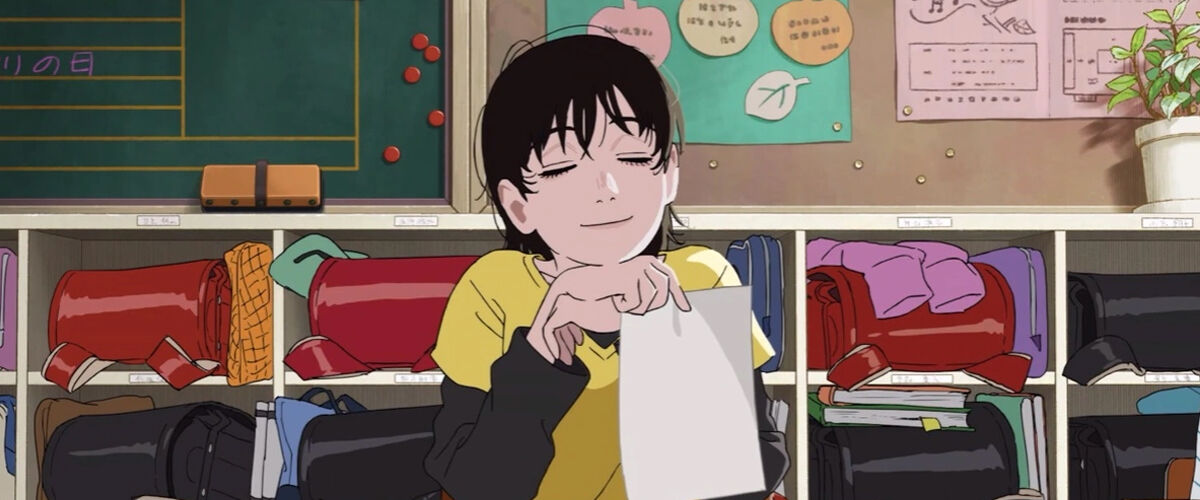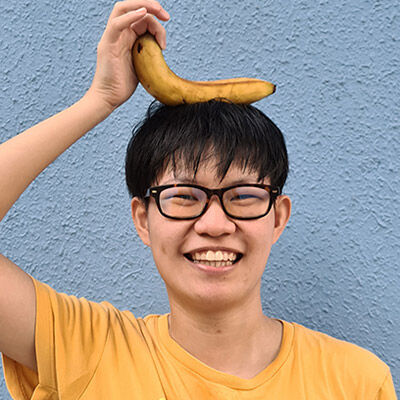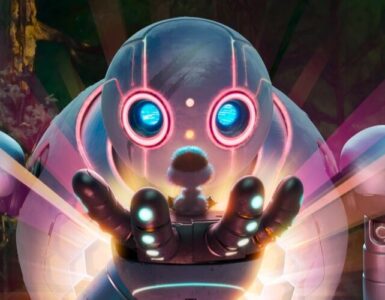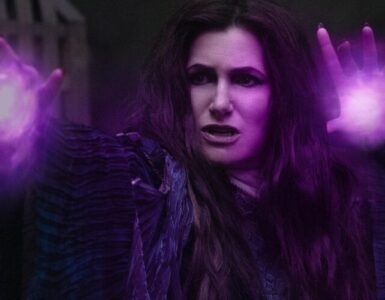For all that art has changed over the years, one thing remains the same – there’s inherent value and significance in the creation process, a display of vulnerability that digs deeply into the emotional psyche. It serves as a culmination of struggle, frustration, and lost inspiration, blossoming into a canvas of triumph, emotional sincerity, and hard-earned satisfaction.
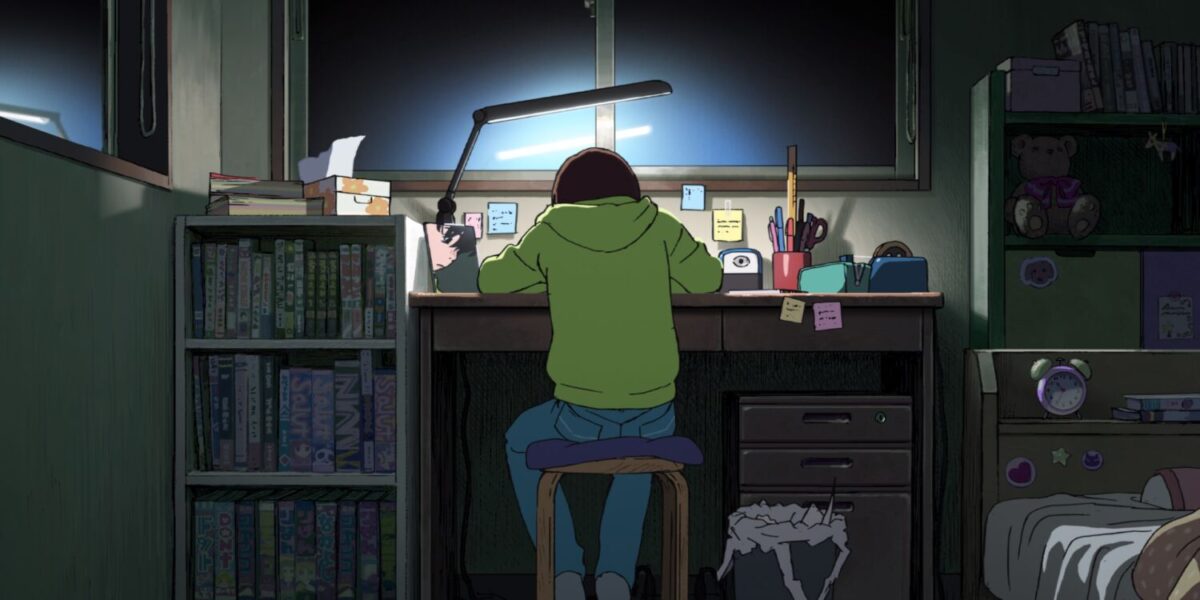
Look Back, based on Chainsaw Man creator Tatsuki Fujimoto’s one-shot manga of the same name, explores this intimate, complicated relationship that all creative hobbyists and professionals share with the craft of artistry. What drives an individual to create? Wherein lies the meaning of art? How do you pick yourself up when it lets you down, even after you try your hardest? A poignant tale about navigating a space that breeds both pleasure and pain, the 58-minute animated feature is a glorious undertaking of friendship, loss, destiny, and passion, and its relevance to real-world philosophies.
The film has a clear, strong identity right off the bat, basking in the glow of celebrating art. Studio Durian founder Kiyotaka Oshiyama’s dedication and attentive care to visual flair is put on display, pulling triple duty as director, character designer, and illustrator of over half the key animation frames. While the crisp, distinct strokes of Chainsaw Man’s brush are immediately noticeable, a softer, mellow touch effuses through the overall presentation, lulling viewers into a sense of comfort and familiarity.
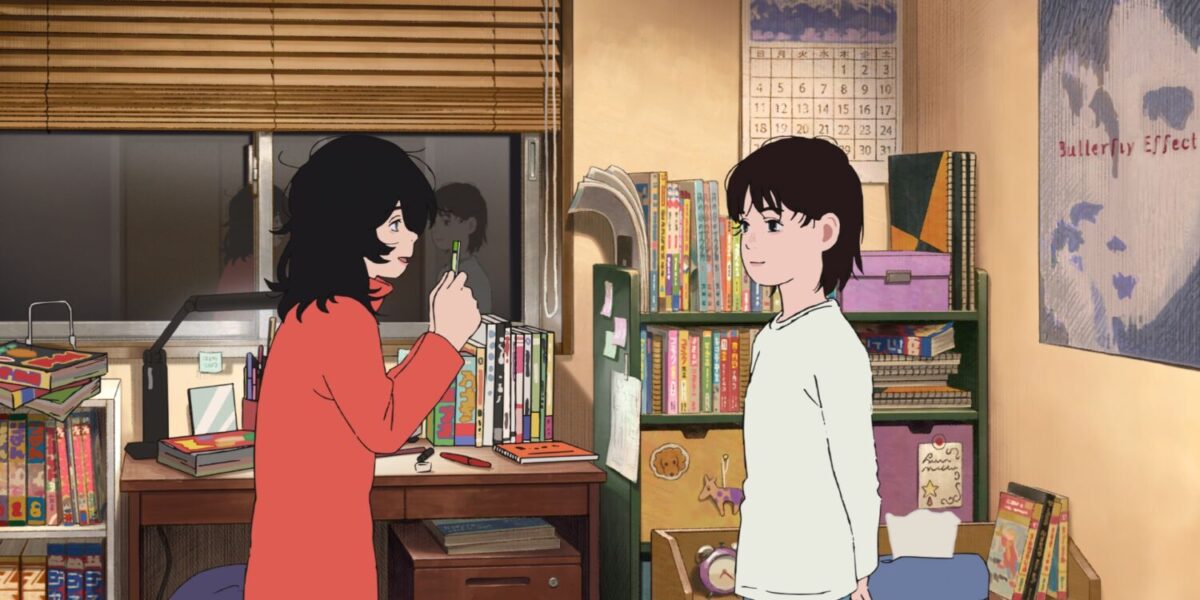
Leading the coming-of-age story is protagonist Ayumu Fujino (Yuumi Kawai, Sayonara, Girls) who upon receiving praise for her gag manga published in the school’s weekly newspaper, asserts her desire to draw manga professionally. Quickly established as an popular, well-rounded presence in class, she soon finds herself outpaced by Kyomoto (Mizuki Yoshida, Alice in Borderland), a truant student suffering from social anxiety, whose drawing abilities are in another league. Cue the start of a one-sided rivalry, with the former doubling down on her efforts to improve her skills in hopes of surpassing Kyomoto.
But the animosity doesn’t last. As fate would have it, the pair would later cross paths with each other, and Kyomoto is revealed to be a big fan of Fujino’s illustrations. Combining their strengths of storytelling and landscape-slash-background work, respectively, they join forces to create original one-shots while still schooling.
It wouldn’t be a Fujimoto work without some conflict, however, and their collaboration reaches a tense high after Kyomoto breaks out of her shell and makes the decision to enroll in art school. The defining moment threatens their friendship and the future of their collaborative efforts, triggering a series of events that ultimately results in tragedy.
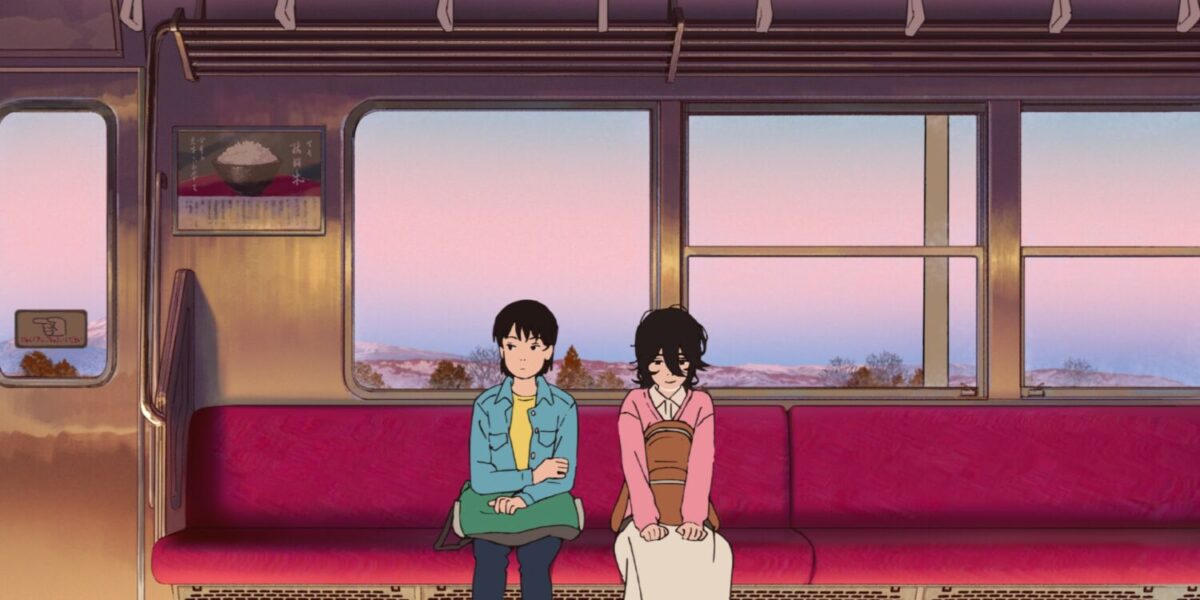
To this end, Look Back is also about honouring the days of shared company. The prodigal duo are two halves of a whole, vastly different personalities held together by a strong love for art. Individually, the characters aren’t the most affable or intriguing, but the contrasting dynamics and charming, magnetic synergy makes it easier to endear them to audiences.
Indeed, Kyomoto and Fujino play well into the opposites-attract and rivals-to-friends tropes. It doesn’t escape the obvious that “Fujimoto” is a portmanteau, coined from a combination of their names, and the creator never ceases to highlight their complementary, yet distinctive qualities throughout the film – spunky and timid, affirmation-seeking versus reclusive, big picture-focused and detail-oriented. Sometimes it boils down to the smaller details, such as how Fujino always takes the lead and her opposing handedness (right-handed versus Kyomoto’s southpaw tendencies).
A cliché it may be, the characterisation still works to great effect, feeding directly into the central theme of loss and connection, and serving as emotional fuel for the film. The same can be said for the storytelling, which isn’t particularly original or fresh, but showcases an impressive mastery of foreshadowing, metaphorical visuals, and callbacks; in fact, Look Back, as a title, is significant in more ways than one, with the most literal meaning being a retrospection of life’s sweetest moments. Another interpretation points to one of Fujino’s lines to Kyomoto, in which she proclaims, “Look at my back, and you’ll get there!”, reflecting the fluidity in the way an individual sees art and attaches a value to it.
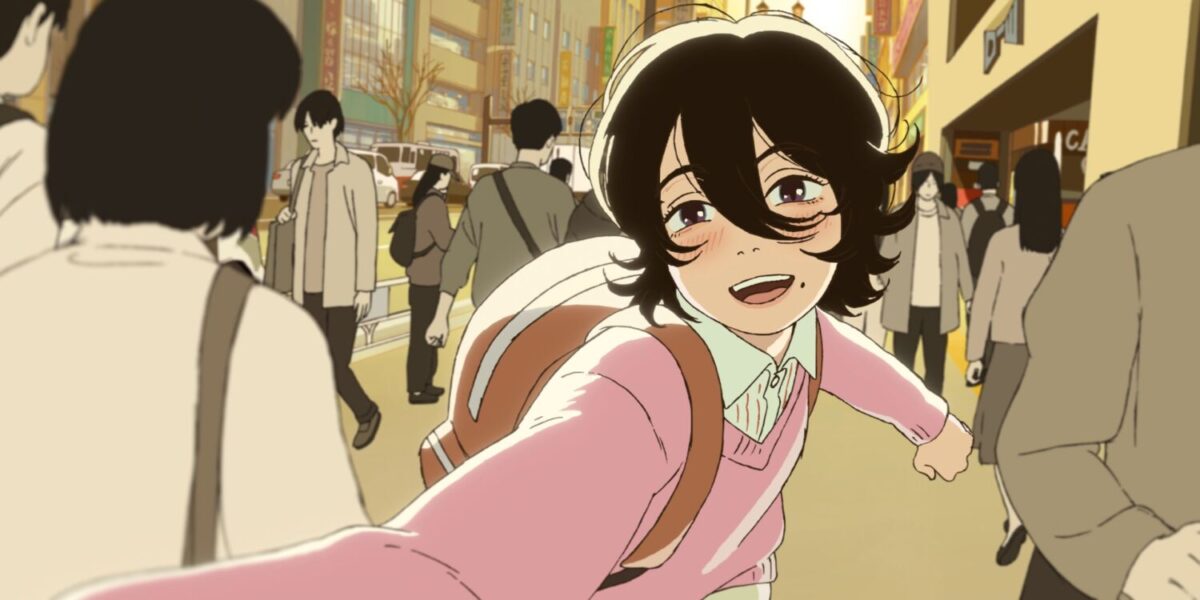
The real feather in Studio Durian’s cap, though, is the bold, striking visuals here. Powered by the combined talents of animation heavyweights from MAPPA, Khara, Science SARU, Production I.G., Studio Ghibli, and more, the film is a charming, springy canvas of surreal visuals, dream-like magic, and infectious personality. It functions like a shapeshifter, seamlessly switching between different forms – one moment, manga panels unfold as flashbacks; in another, gentle energy crescendos into an explosive sequence of unleashed emotions. Elsewhere in the last act, a what-if scenario gets a refreshing, sliding door-style time travel treatment.
More admirably, the hand-drawn magic lends extra detail to its silky-smooth animation. The crisp lineart highlights subtle elements like the wrinkles and creases in clothing, while perspective changes prove effective in conveying an idea of space and amplifying associated feelings, such as loneliness or anxiety. Look Back remains faithful to Fujimoto’s original work, and it’s all these small furnishings that elevate its ability to convey the human touch, whether lighthearted or serious, even if the stylistic aesthetic may not be everyone’s cup of tea.
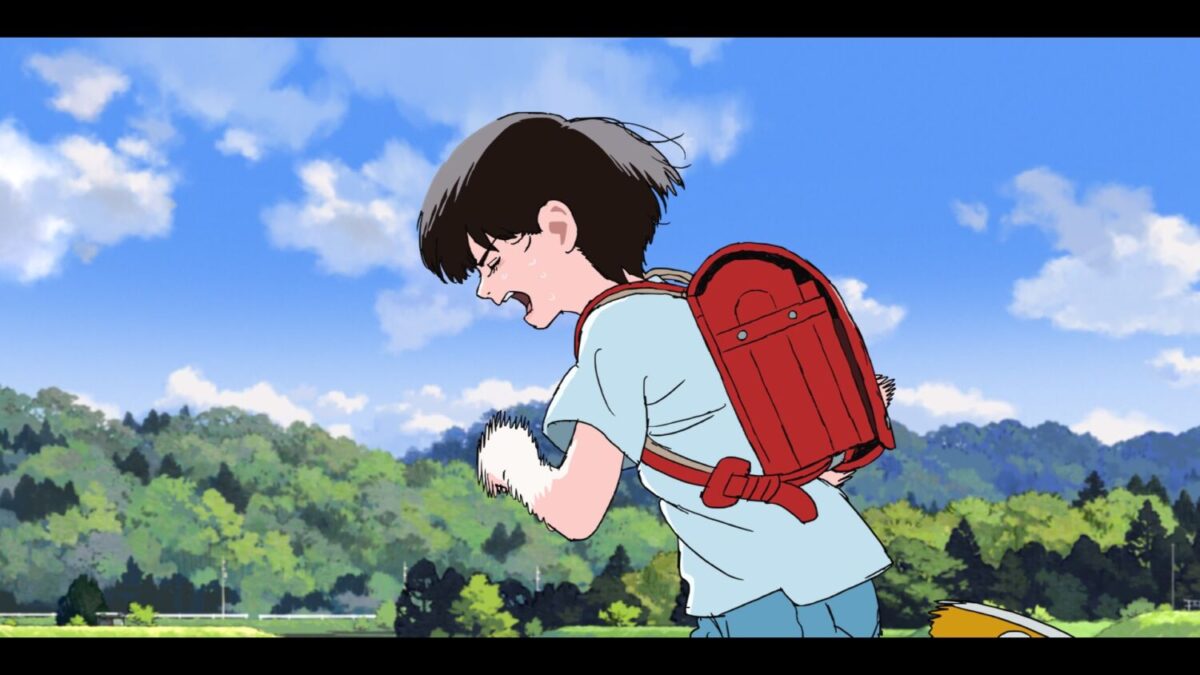
There’s little to fault about the adaptation, which also delivers on its tight, even pacing and the balance of humour and emotional nuance. If there has to be something, however, it’d be the soundtrack – while haruka nakamura’s score packs a vivacious and nostalgic punch that captures both the heartwarming and heart-wrenching experience, it can be over-employed at times, in a way that seems more forced than natural.
Drawing out the beauty from brevity is always easier said than done, yet Look Back rises to the occasion so effortlessly and gracefully. It is art paying tribute to artistry, a labour of love that frustrates as much as it delights, takes as much as it gives, and batters confidence as much as it inspires. Held together by two women and one dream, the film is an open invitation to create and not be afraid to stumble, a powerful message amid the influx of generative AI fabulism in the current landscape. Ultimately, creativity, art, and self-expression will triumph, and the flick is proof of how it all makes us human.
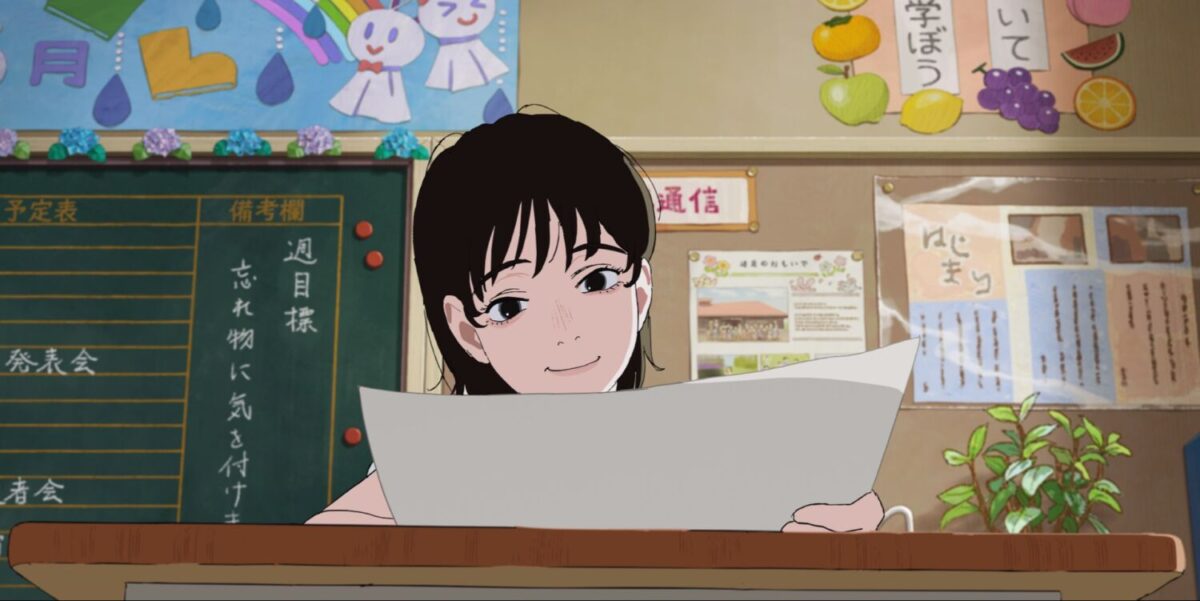
Look Back opens in Singapore on 8 August.
GEEK REVIEW SCORE
Summary
Look Back is a thoughtful, heartfelt visual spectacle that encapsulates the pleasure and pain of artistry, carving out a place in the pantheon of animated masterpieces.
Overall
8.9/10-
Story - 8.5/10
8.5/10
-
Characterisation - 8.5/10
8.5/10
-
Direction - 9.5/10
9.5/10
-
Geek Satisfaction - 9/10
9/10

